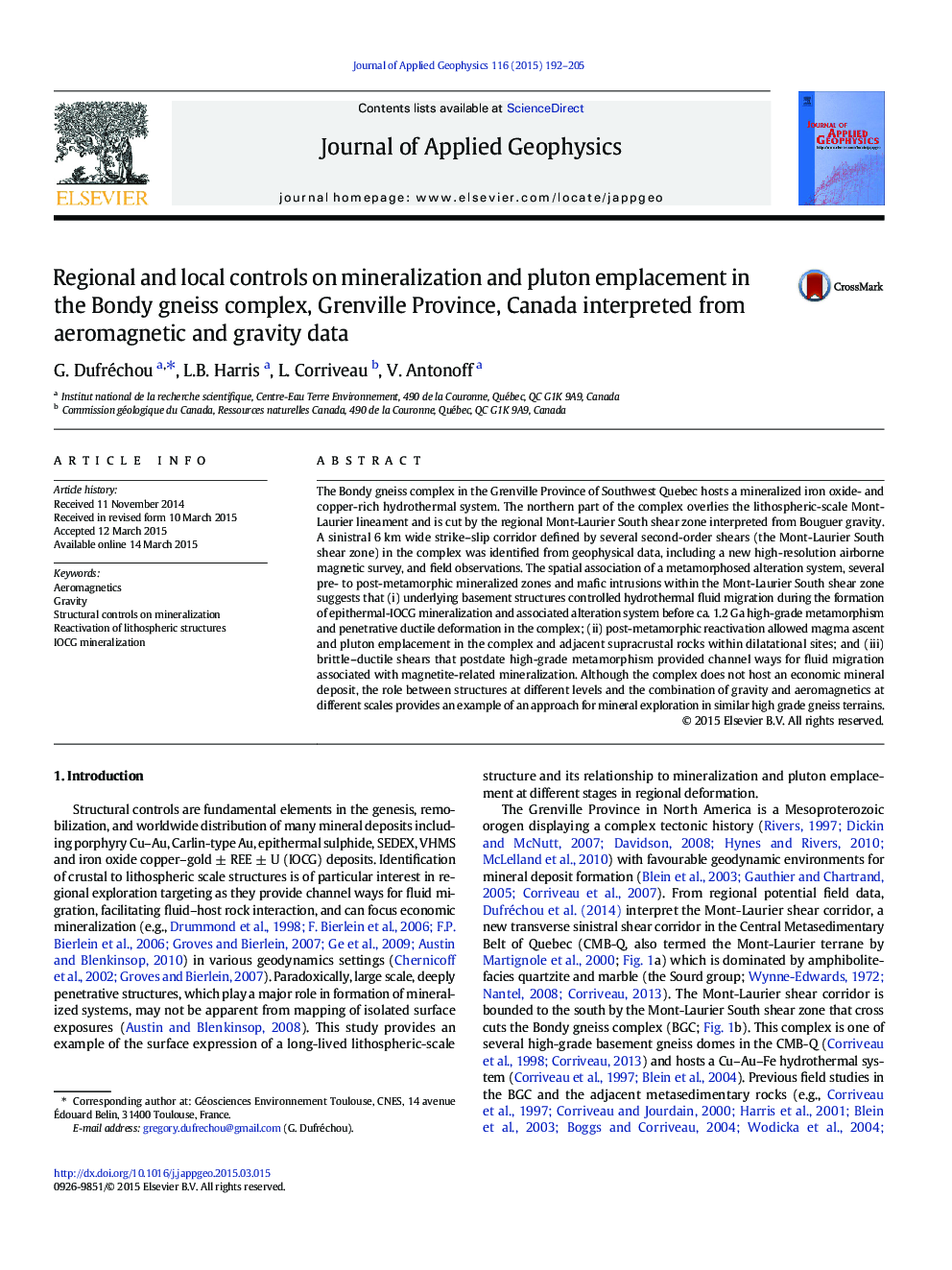| کد مقاله | کد نشریه | سال انتشار | مقاله انگلیسی | نسخه تمام متن |
|---|---|---|---|---|
| 4739968 | 1641135 | 2015 | 14 صفحه PDF | دانلود رایگان |

• The Mont-Laurier S shear zone is a sinistral 6 km wide strike–slip corridor.
• Underlying basement structures controlled hydrothermal fluid migration.
• Reactivation controlled pluton emplacement in the Mont-Laurier S shear zone.
• The Bondy gneiss complex shows several common features to IOCG deposits.
The Bondy gneiss complex in the Grenville Province of Southwest Quebec hosts a mineralized iron oxide- and copper-rich hydrothermal system. The northern part of the complex overlies the lithospheric-scale Mont-Laurier lineament and is cut by the regional Mont-Laurier South shear zone interpreted from Bouguer gravity. A sinistral 6 km wide strike–slip corridor defined by several second-order shears (the Mont-Laurier South shear zone) in the complex was identified from geophysical data, including a new high-resolution airborne magnetic survey, and field observations. The spatial association of a metamorphosed alteration system, several pre- to post-metamorphic mineralized zones and mafic intrusions within the Mont-Laurier South shear zone suggests that (i) underlying basement structures controlled hydrothermal fluid migration during the formation of epithermal-IOCG mineralization and associated alteration system before ca. 1.2 Ga high-grade metamorphism and penetrative ductile deformation in the complex; (ii) post-metamorphic reactivation allowed magma ascent and pluton emplacement in the complex and adjacent supracrustal rocks within dilatational sites; and (iii) brittle–ductile shears that postdate high-grade metamorphism provided channel ways for fluid migration associated with magnetite-related mineralization. Although the complex does not host an economic mineral deposit, the role between structures at different levels and the combination of gravity and aeromagnetics at different scales provides an example of an approach for mineral exploration in similar high grade gneiss terrains.
Journal: Journal of Applied Geophysics - Volume 116, May 2015, Pages 192–205